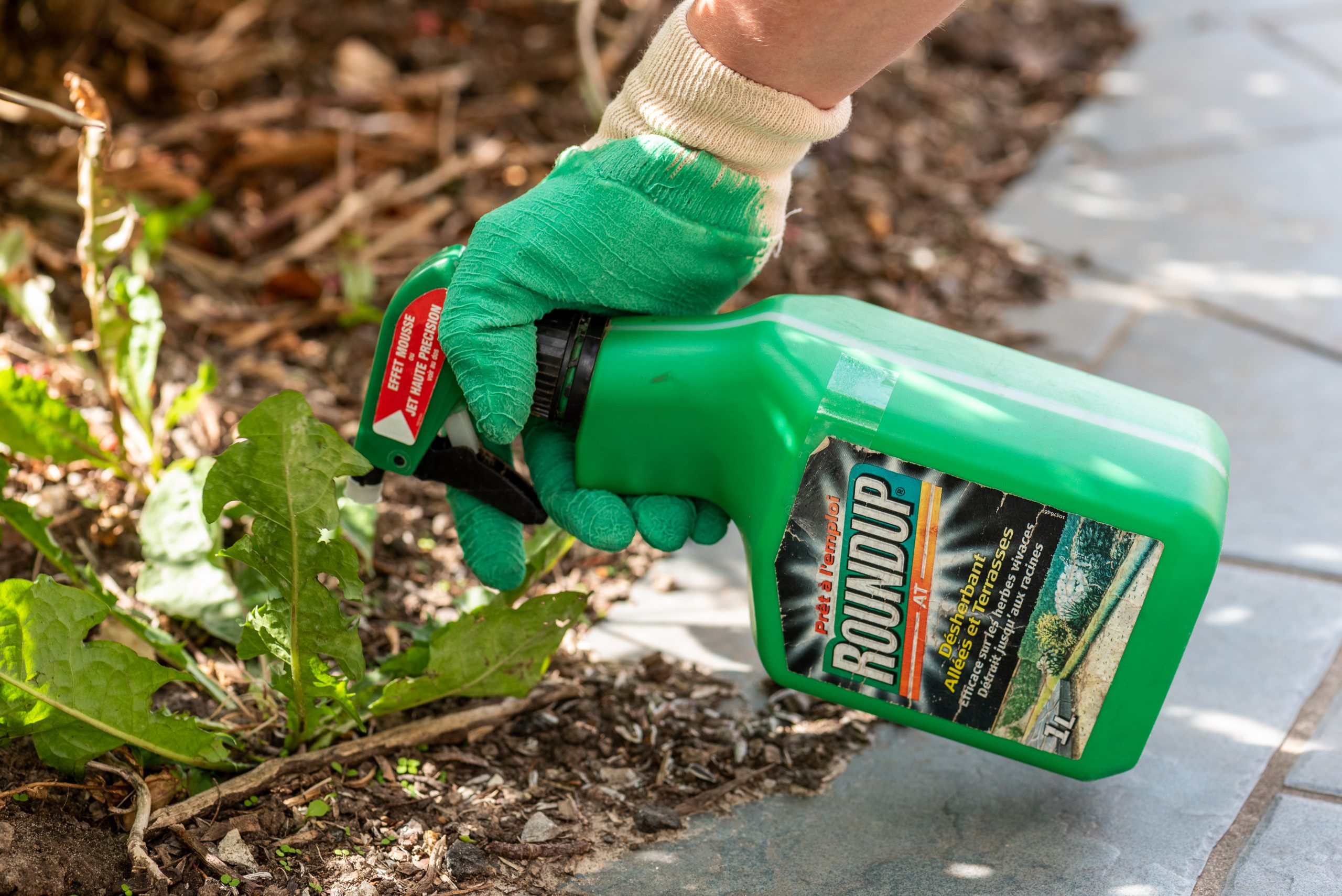Monsanto’s Roundup line of products has always boasted about being tough on weeds, but safe for humans and the environment. Based on the thousands of lawsuits filed across the country, Roundup may not have been as safe as initially advertised. Monsanto, and their parent company Bayer, deny the accusations that Roundup has caused the thousands of cancer cases across the United States. They maintain that their product is safe for use by humans and on the environment.
Monsanto and the Roundup Line of Products
In 1970, a chemist for Monsanto named John Franz discovered that glyphosate contained herbicidal properties. Four years after this discovery was made, Monsanto released its line of herbicide with the brand name Roundup. Since its release, Monsanto has boasted that Roundup is tough on weeds, but it is also safe for use by humans and on the environment. They continue to make the same claim today, despite the lawsuits.
Glyphosate is the number one choice for herbicide in the United States. The presence of the chemical can be found in more than just Roundup’s line of herbicides, but also used commercially in the farming industry as well. Farmers use glyphosate to promote crop growth by killing out the weeds that overrun their fields.
Early studies that were conducted in 1985 showed that glyphosate could cause cancer in laboratory animals. Due to these findings, the EPA classified glyphosate as “possibly carcinogenic to humans,” or Group C. The classification of glyphosate would change after Monsanto pressured the EPA with research findings that proved their initial classification was wrong.
The EPA changed glyphosate from Class C to Class E in 1991. Class E means that “evidence of non-carcinogenicity in humans.” The EPA put a firm emphasis on the decision being based on the evidence in front of them. It didn’t mean that glyphosate would never cause cancer.
In research that was conducted by the International Agency for Research on Cancer, which is the cancer research sector of the World Health Organization, glyphosate was classified as “probably carcinogenic to humans” in July 2015. The EPA and Bayer still maintain that glyphosate does not have adequate evidence linking it to cancer.
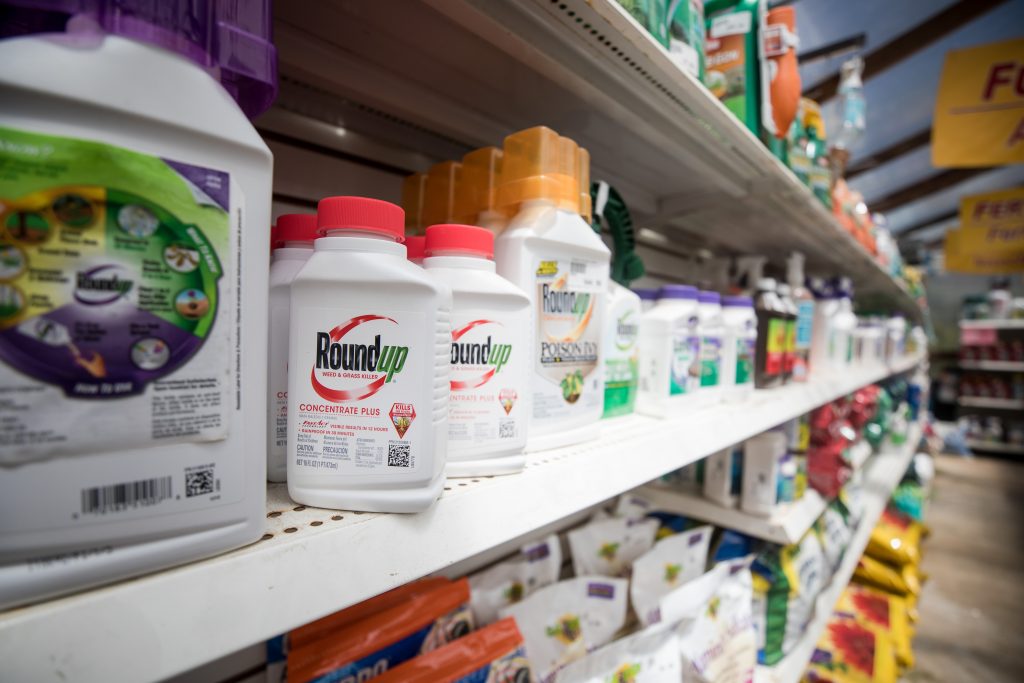
The Existence of the Monsanto Papers
The Monsanto Papers are internal documents that turned up when the trials against Roundup began in 2017. These papers had compelling evidence that Monsanto was aware of the carcinogenic properties of glyphosate. They also showed the great lengths that Monsanto was willing to go to cover it up.
Later investigations into two of the independent research firms that Monsanto used to prove that glyphosate did not cause cancer were found to conduct fraudulent business practices. Emails among Monsanto employees proved that they did not test for carcinogenic properties of glyphosate, nor did they test the longterm toxicity.
Evidence shows that Monsanto was working to create their own network of scientists to promote the safety of glyphosate. The evidence against Monsanto dates back to as early as 1999. There is even proof of articles being ghostwritten and published in major toxicology journals.
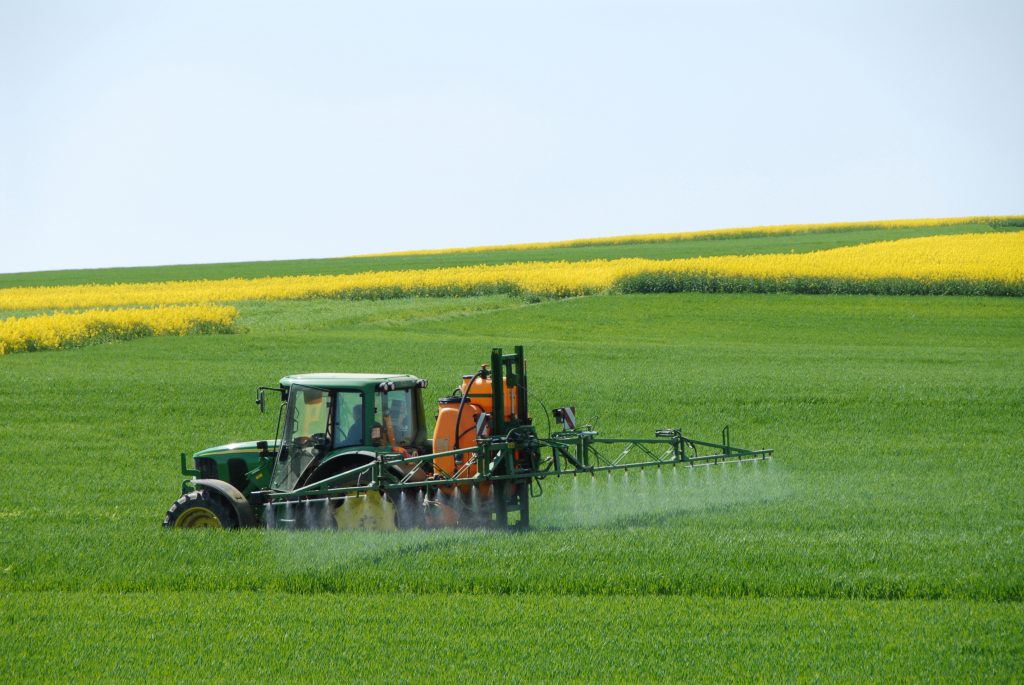
Cancers Linked to Glyphosate and Roundup
Glyphosate is classified as a Class 2A herbicide, which means it is probably carcinogenic to humans. Cancers that have been linked to exposure of glyphosate include:
- Non-Hodgkin’s lymphoma
- Hematopoietic Cancers
- Lymphocytic lymphoma/chronic lymphocytic leukemia
- B-cell lymphoma
- Multiple myeloma
A majority of the lawsuits that have been filed against Monsanto deal with non-Hodgkin’s lymphoma diagnosis. Despite the lawsuits that have been filed and won against Monsanto, they still claim that their glyphosate-based herbicide Roundup is not responsible for cancer, nor did it create reasonable risks to humans.
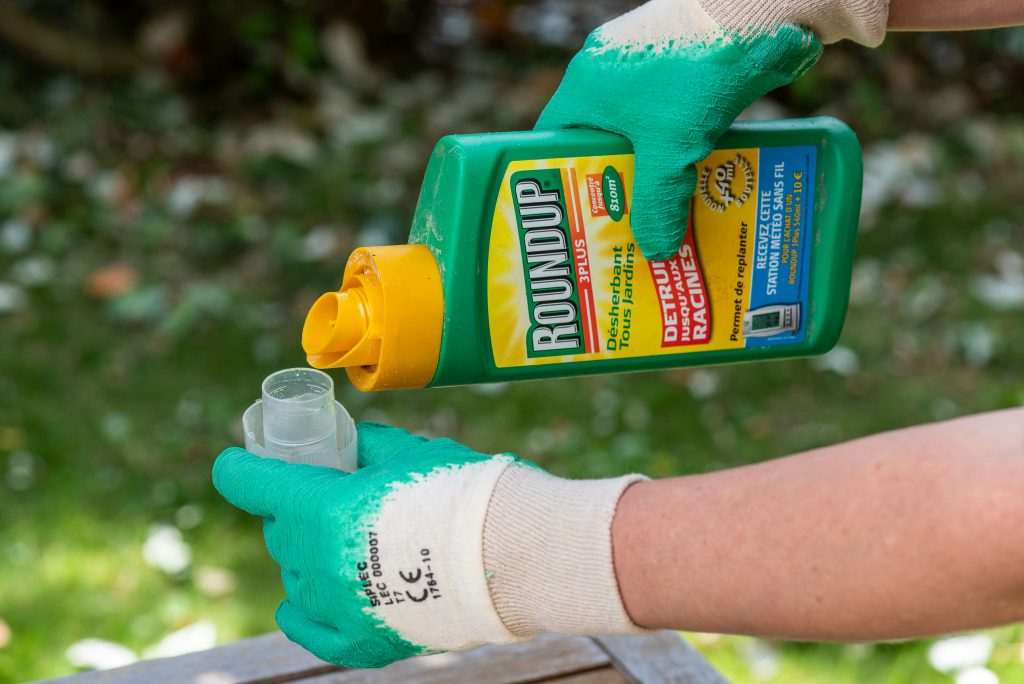
Who is at Risk of Developing Cancer from Glyphosate?
The most commonly used chemical in herbicides across the United States is glyphosate. Any person who has used Roundup or another herbicide with glyphosate in it is at risk of developing cancers like non-Hodgkin’s lymphoma.
Although there is no scientific basis for the claim, it is believed that older people may be more vulnerable to glyphosate. Observations made by the American Cancer Society found that most of the plaintiffs of Monsanto lawsuits were aged 60 or older.
Other factors that can place a person in danger of developing cancer from glyphosate:
- Someone passionate about working in their garden and uses Monsanto’s Roundup products to eliminate weeds
- Workers in the farming industry
- People who work in garden centers or a nursery
- Groundskeepers who use glyphosate products to maintain the integrity of the grass where they work
- Horticulturalists
- Anyone working in the landscape architecture field
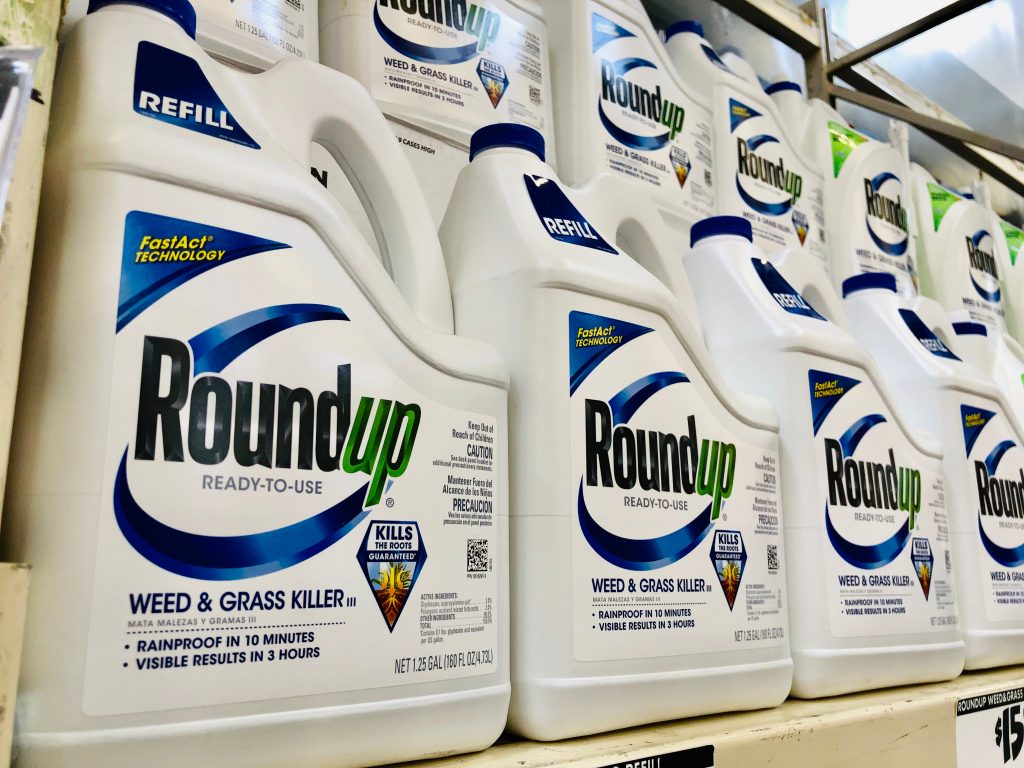
Symptoms of Non-Hodgkin’s Lymphoma
Non-Hodgkin’s lymphoma is cancer that starts in the lymph node system of the body. To confirm that non-Hodgkin’s lymphoma is present, a medical professional will have to run tests to confirm a diagnosis. The most common symptoms that are present with non-Hodgkin’s lymphoma include:
- Fever
- Chest pain
- Cough
- Anemia
- Skin rash
- Nausea or vomiting
- Headaches
- Swollen lymph nodes
- Pain in the abdomen or stomach
- Shortness of breath
- Weight loss
- Chronic fatigue
- Night sweats/chills
- Loss of appetite
- Difficulty moving
If you or a loved one are experiencing these symptoms and have used Monsanto’s glyphosate-based herbicide Roundup, you should contact your physician immediately for a consultation.
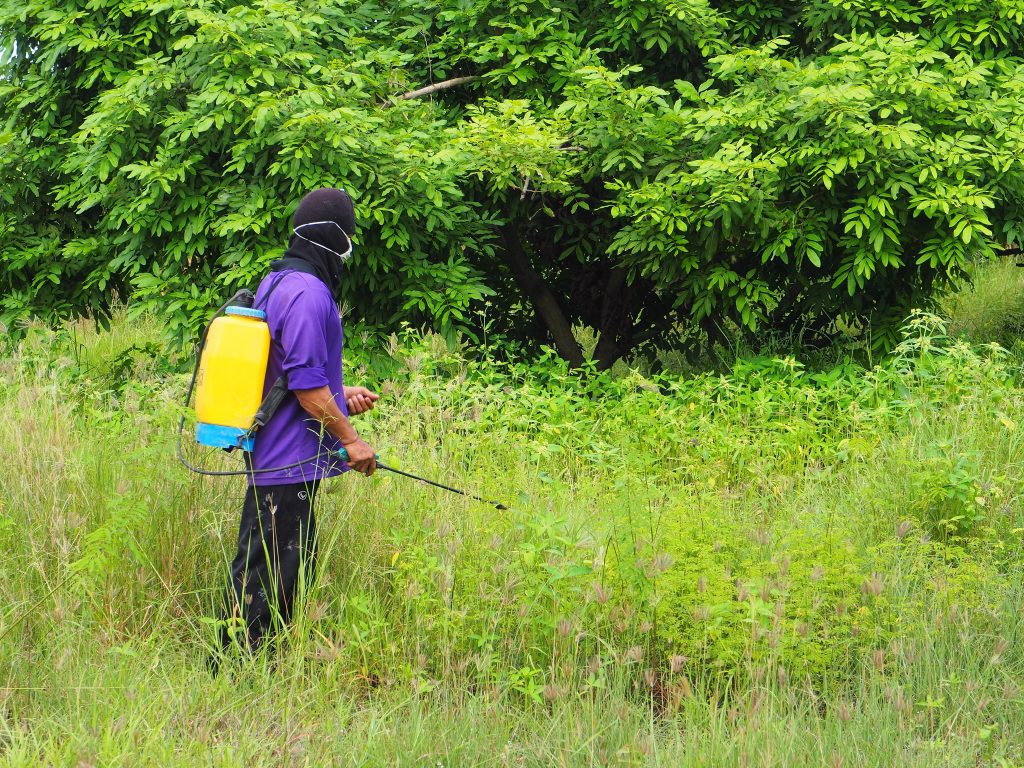
Recent Lawsuits and Judgements
There have been three significant lawsuits against Monsanto’s Roundup, one in federal court and two in state courts. These lawsuits are the first of many that have now been filed against the company.
- $289 Million in August 2018
- A school groundskeeper in California was awarded $289 million after it was proven that he developed terminal cancer and skin lesions after using Monsanto’s Roundup products.
- $80 Million in March 2019
- A 70-year-old man developed non-Hodgkin’s lymphoma after using Monsanto’s Roundup products on his lawn for over 20 years.
- $2 Billion in May 2019
- The jury involved in this case awarded a California couple $2 million in compensation and punitive damages after both were diagnosed with non-Hodgkin’s lymphoma. The couple had been using Monsanto’s Roundup products on their lawn for over 30 years. The jury explicitly stated that Roundup is a defective product, Monsanto was negligent, and that the company failed to warn the consumers of the potential dangers the product presented.
In 2018, Bayer paid a large sum of money to acquire Monsanto and its products, including Roundup. Bayer has stated that they will appeal to any jury verdict that is not in their favor for these cancer lawsuits. Bayer did file an appeal against the couple in California who was awarded the $2 billion. However, the couple’s lawyer has since filed a counter-appeal of the case.
There are presently thousands of lawsuits pending against Monsanto and the Roundup line of products due to product liability.
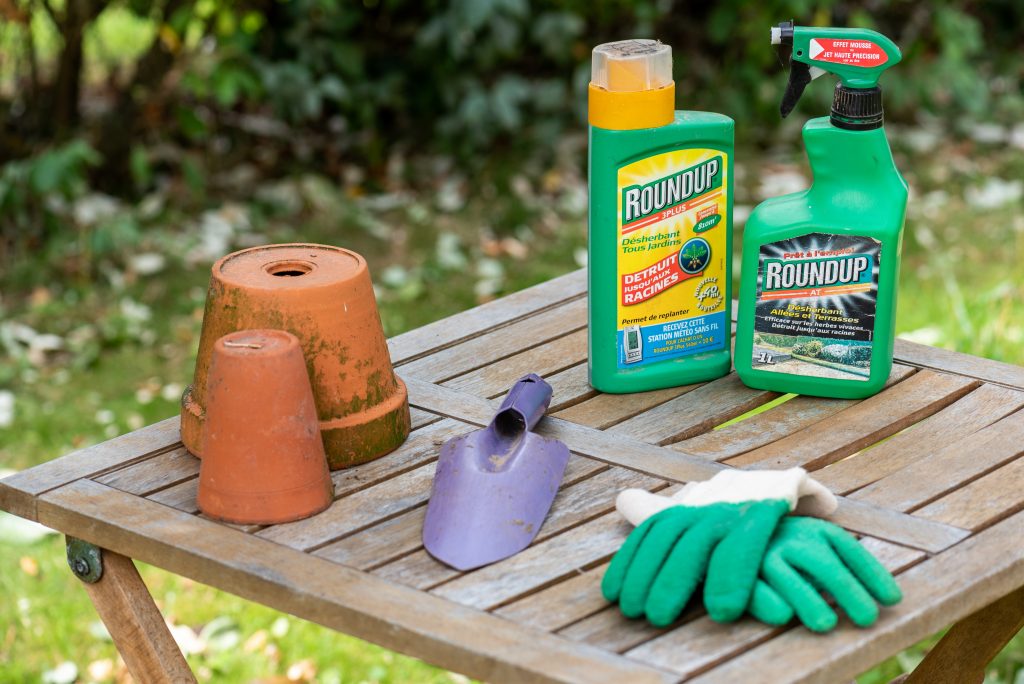
Who is Eligible to File a Lawsuit Against Monsanto’s Roundup?
Any person who has been affected by Monsanto’s Roundup line of products can file a lawsuit against the company for product liability. These are the people who commonly file product liability lawsuits:
- Victims who have developed non-Hodgkin’s lymphoma or other types of cancer associated with Monsanto’s Roundup line of products
- Family members of deceased victims who died as a result of cancer caused by exposure of glyphosate in Roundup’s line of products
- Estate managers who handle the estate of the deceased victim that died as a result of cancer associated with Roundup and glyphosate
What is a Product Liability Lawsuit?
A product liability lawsuit is a lawsuit that is filed against a manufacturer for being negligent and having a defective product. In the case of Monsanto’s negligence, they failed to warn customers of the potential dangers of using their glyphosate-based herbicide products. Monsanto even went as far as to promote their products as being safe for humans and the environment.
When you hire a product liability lawyer, it will be their job to provide the burden of proof in the case. The burden of proof is the evidence that shows the product manufacturer was negligent, and the product was defective. Your product liability lawyer will gather evidence in four areas to prove your claim for product liability.
You were injured or suffered losses- Your product liability lawyer will be tasked with providing evidence that you suffered injuries and damages as a result of the faulty product. These damages will often include medical bills incurred as a result of the defective product and lost income from being off of work.
The product is defective- To prove that the product was defective, you must prove that the product was:
- Defectively manufactured
- Contained a design flaw that resulted in your injury
- There was not sufficient warning about the dangers the product posed on the consumer
The defective product caused your damages or injuries- Your product liability lawyer must be able to prove that the product directly caused your injuries and the monetary amounts that are being sued for.
You used the product as it was intended to be used- The most common defense used in a product liability case is that the plaintiff did not use the product as it was intended to be used by the manufacturer of the product. Most defendants will try to use the excuse that the plaintiff was using the product in a manner in which it was not to be used or did not read the directions. Product liability lawyers will be required to prove to the judge and jury that their client was using the product as intended.
Why You Need A Product Liability Lawyer
If you or a loved one has been diagnosed with non-Hodgkin’s lymphoma or another type of cancer associated with the use of herbicides, you may be entitled to compensation. You need to obtain legal counsel before trying to file a claim against companies like Bayer and Monsanto. The product liability lawyers at TorkLaw are knowledgeable about taking on these big companies and know all of the evidence needed to build a highly sufficient case.
If you or a loved one are the victims of Monsanto’s Roundup line of products, call 888-845-9696 for your free case consultation with TorkLaw.
